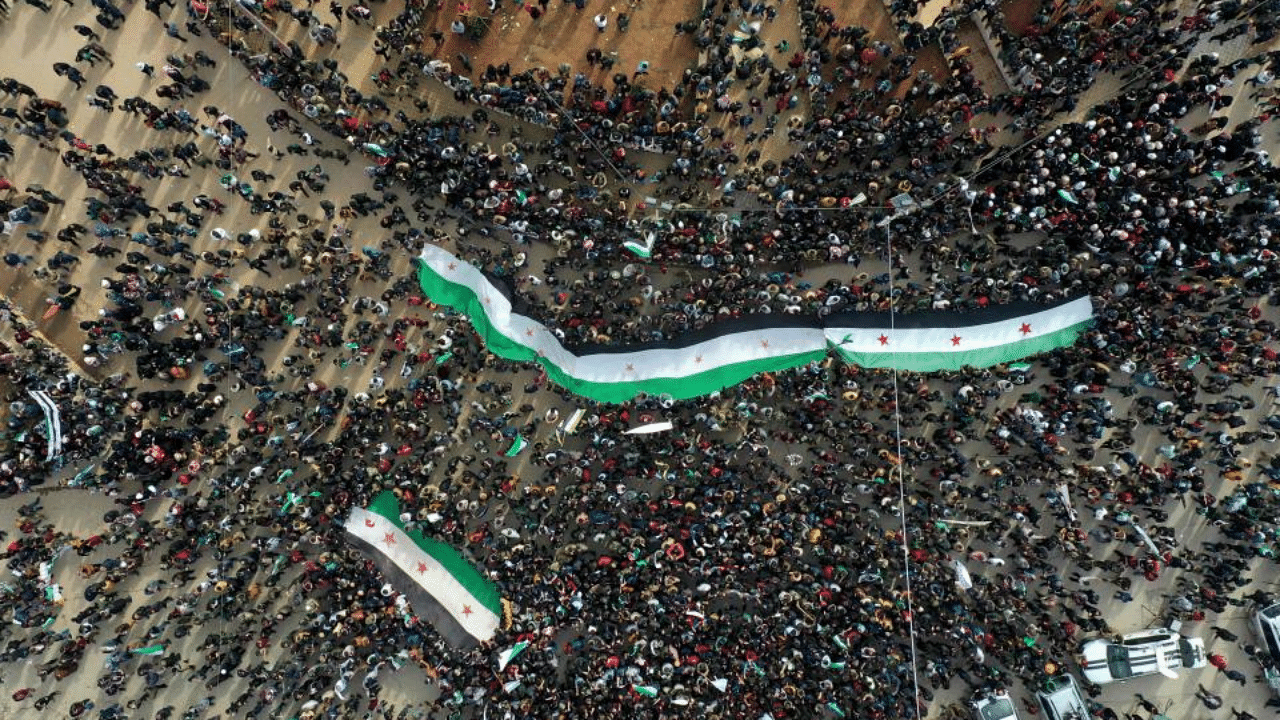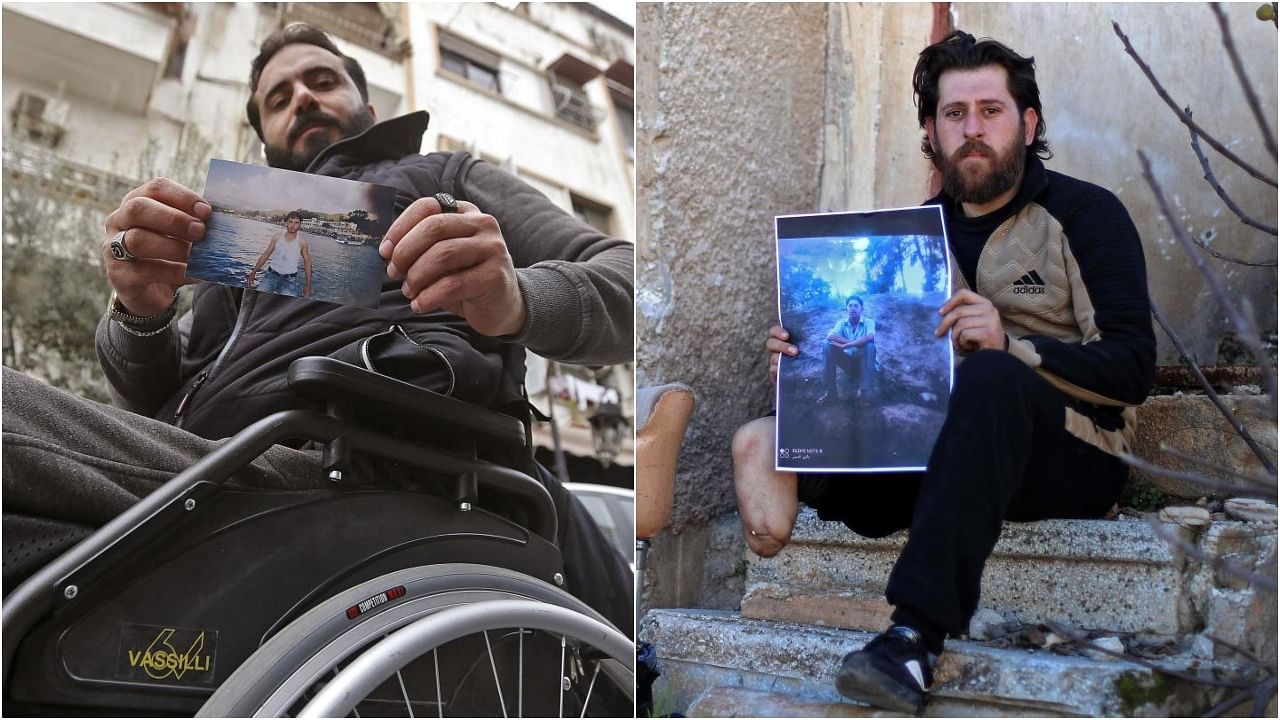

Samer became paralysed, Bakri had a leg amputated and Rukaia fled to France: a decade of civil war in Syria has devastated millions of lives.
As the conflict enters its 11th year this month, 10 Syrians shared with AFP pictures of themselves before the start of the 2011 war, and recounted how their lives have been changed by the fighting.
Speaking from across fragmented Syria or even abroad, they give a personal account of a war that has killed more than 387,000 people and displaced millions from their homes.
In the capital Damascus, 33-year-old Samer Sawwan holds up a picture of himself standing on a beach in the coastal resort of Latakia.
That was before a bullet shot through his car while he was driving in 2011, sending the vehicle into a barrel roll that paralysed him forever.
"I passed out with two legs, and woke up in a wheelchair," he says. "My ambitions and dreams have changed."
At least 1.5 million Syrians have suffered a disability as a result of the war, the United Nations says.
In the last major rebel bastion of Idlib, 29-year-old Bakri al-Debs rests on stone steps with one leg amputated above the knee, his artificial leg resting beside him.
The former medic holds a picture of himself in a similar position at university a decade ago in Latakia where he studied sociology, before he was maimed in what he says was a government barrel bomb strike.
In Idlib city, former rebel fighter 28-year-old Mohammed al-Hamid leans on crutches, holding a large picture showing him before the war in a military uniform and holding a weapon.
He says he was wounded in a 2016 battle against government forces in Latakia, where his brother also died in his arms.
That same year, he learnt that three other siblings had died in prison.
In 2017, warplanes bombarded his home in Idlib, killing his daughter.
Also in Idlib, Abu Anas, 26, holds an image of himself when he was 16 years old.
A native of the Damascus countryside, Abu Anas was displaced to Idlib in 2018 where artillery shelling two years later caused him to lose his eyesight.
In the northern city of Aleppo, retaken by government forces from rebels in late 2018, Ahmad Nashawi posed in front of his destroyed house.
The man in his fifties, once one of the city's most popular fishmongers, said his home and shop were obliterated in clashes between rebels and pro-government fighters in 2015.
The war has also flung journalists into exile.
Rukaia Alabadi, 32, arrived in Paris as a refugee in 2018 after escaping threats over her reporting about the reality of life in the eastern province of Deir Ezzor under the Islamic State jihadist group.
Before that, the young woman had been jailed for months by the regime and accused of being a media activist.
The picture she shares with AFP shows her wearing a chador and a face veil in 2011 when she was studying economics at university.
Anas Ali, 27, has lived in France as a refugee since 2019.
Before that he was in the rebel enclave of Eastern Ghouta on the doorstep of Damascus until government forces seized it in early 2018 following years of bombardment and a devastating siege.
A citizen journalist, Anas covered fighting between both sides and in 2013 was wounded, sustaining face injuries, according to the picture he showed AFP.
In Iraqi Kurdistan, Dima al-Kaed, 29, clutched a memento of her graduation, one of the few belongings she kept after her family moved from Damascus and sold their home.
"I dreamt of changing the world, but instead the war changed mine," she said.
Life in exile has at times been tough.
Fahad al-Routayban, 30, works as a building concierge in the northern Lebanese city of Tripoli.
On his smartphone, he pulled up an image showing him in uniform during his military service in 2010.
In the ravaged Palestinian neighbourhood of Yarmouk south of Damascus, 70-year-old Palestinian painter Mohammed al-Rakouia stood on top of the ruins of his gutted studio.
"Nothing can make up for my losses," he said.
"My studio has been destroyed, my paintings have been stolen, and my colours have been scattered all over the place."